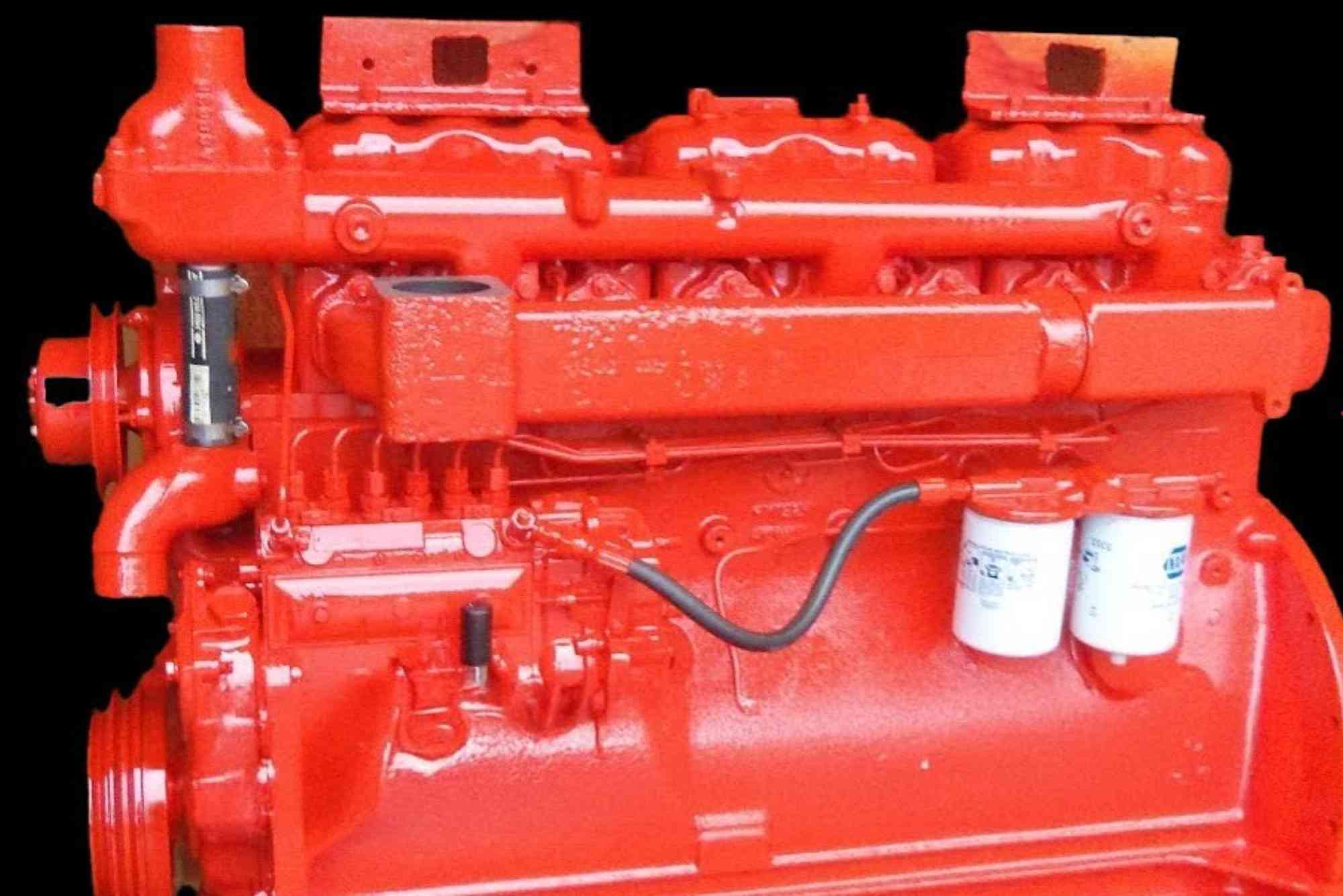Case 504 Engine: Features and Performance Insights
The Case 504 engine has earned a strong reputation in the agricultural and construction industry for its reliability, durability, and consistent performance. Farmers, contractors, and machinery operators have long trusted this engine to power heavy-duty equipment under tough working conditions. Whether it’s installed in tractors, combines, or construction machinery, the Case 504 engine stands out for its balance of strength, efficiency, and longevity. In this article, we will explore its features, performance insights, common issues, and maintenance practices, while also answering some of the most frequently asked questions.
Understanding the Case 504 Engine
The Case 504 engine was developed by J.I. Case, a company recognized for producing dependable agricultural machinery. Designed as a workhorse, it is a six-cylinder diesel engine with a displacement of 504 cubic inches. Its construction emphasizes heavy-duty applications, offering enough torque and horsepower to handle demanding farm and industrial tasks. Unlike lighter engines, the Case 504 was engineered with thick cylinder walls, strong crankshafts, and durable components to withstand continuous use.
Key Specifications
The Case 504 engine is a naturally aspirated or turbocharged diesel engine, depending on the model. Its bore and stroke are designed for optimal combustion, and its compression ratio ensures efficient fuel burning. The horsepower range varies depending on whether it is fitted in tractors or industrial machines, but operators can typically expect output in the 120–150 horsepower range, with torque delivery designed to perform well under load. These specs made it a popular choice in Case tractors like the 1070, 1090, and other heavy-duty models.
Why It Became Popular
The popularity of the Case 504 engine comes down to three major factors: durability, power, and ease of maintenance. Farmers appreciated that the engine could handle plowing, tilling, and harvesting with minimal downtime. Contractors valued its strength in powering loaders, graders, and other construction equipment. Most importantly, mechanics noted that the engine’s design allowed for straightforward repairs, reducing downtime when issues did occur.
Performance Insights of the Case 504 Engine
When it comes to performance, the Case 504 engine delivers a combination of steady power and long-term dependability. Unlike some engines that struggle under heavy load, the Case 504 is designed to maintain consistent torque, making it ideal for agricultural fields and construction sites where reliability is essential.
Fuel Efficiency and Power Balance
The Case 504 is not the most fuel-efficient engine by modern standards, but for its era, it offered a respectable balance of fuel economy and power. Operators often noted that while the engine consumed fuel steadily, it provided enough torque to accomplish tasks without overexertion. In heavy farming, this balance meant fewer passes across a field, saving both time and fuel.
Durability in Harsh Conditions
One of the defining traits of the Case 504 engine is its durability. It was built to handle dusty fields, long operating hours, and heavy pulling loads. The engine’s oil and cooling systems were engineered to manage heat effectively, reducing the risk of overheating even under long work shifts. Many Case 504 engines are still operational decades later, proving the effectiveness of their design.
Maintenance and Serviceability
Another important performance aspect is how easily the Case 504 engine can be maintained. Many older engines required complex servicing, but the Case 504 was designed with accessibility in mind. Filters, injectors, and other service points can be reached without excessive disassembly. This allowed farmers and operators to perform routine maintenance themselves, minimizing the need for specialized mechanics.
Common Issues with the Case 504 Engine
Like all engines, the Case 504 is not without its issues. However, most problems are related to age, wear, and lack of regular maintenance rather than poor engineering.
Fuel System Challenges
One commonly reported issue is fuel system wear. The injection pump and injectors may need servicing after extended use. Poor fuel quality can accelerate this issue, leading to hard starts and uneven running.
Cooling System Wear
The cooling system is another area to watch. Over time, radiators and water pumps may lose efficiency, which can lead to overheating if not addressed. Regular coolant changes and inspections help extend the life of these components.
Oil Leaks and Gasket Wear
Given the age of many Case 504 engines, oil leaks from seals and gaskets are not unusual. Fortunately, these are typically easy to repair and do not indicate major engine failure if addressed promptly.
Maintenance Tips for Longevity
Owners who want to extend the life of their Case 504 engine should focus on consistent and preventative maintenance.
Regular oil changes are crucial since diesel engines produce carbon buildup that can affect lubrication. Using high-quality oil and filters ensures cleaner operation and reduces wear. Fuel system care is equally important—keeping fuel clean and replacing filters regularly helps avoid injector damage. Cooling system checks should be part of seasonal maintenance, ensuring radiators, hoses, and pumps remain in working order. Lastly, monitoring seals and gaskets can prevent leaks before they become significant issues.
Case 504 Engine in Agricultural Use
For farmers, the Case 504 engine has been a reliable partner. Its strong torque output makes it well-suited for pulling implements, powering harvesters, and handling soil preparation. Many Case tractors equipped with the 504 engine became staples on farms across North America because they could handle multiple tasks without compromising performance.
Case 504 Engine in Construction Equipment
In construction, the Case 504 engine powered graders, loaders, and industrial tractors. Its ability to operate for long hours without overheating was highly valued in this sector. Contractors relied on it for heavy digging, grading, and lifting tasks, proving its versatility beyond farming.
Why the Case 504 Engine Still Matters Today
Even though modern engines now dominate the market, the Case 504 engine remains relevant. Many units are still in operation, serving smaller farms and businesses. Its design represents an era when engines were built to last decades with proper care. Collectors and restorers also value these engines, often rebuilding them to factory standards for use in vintage Case tractors.
FAQs
What is the horsepower of the Case 504 engine?
The horsepower typically ranges from 120 to 150, depending on the model and application.
Is the Case 504 engine reliable?
Yes, it is known for reliability, especially when maintained properly. Many units are still running today.
Which tractors use the Case 504 engine?
Popular Case tractors like the 1070, 1090, and similar models often used the 504 engine.
How long does a Case 504 engine last?
With regular maintenance, these engines can run for thousands of hours, often exceeding several decades of service life.
Can the Case 504 engine be rebuilt?
Yes, parts are available, and the engine is straightforward to rebuild compared to more modern designs.
The Case 504 engine stands as a symbol of durability, strength, and simplicity in design. Its widespread use in both agriculture and construction shows just how dependable it has been for decades. From its consistent torque output to its long service life, this engine remains a favorite among operators and restorers. While modern technology has introduced more efficient engines, the Case 504 continues to prove that reliability never goes out of style.
If you own or plan to purchase equipment powered by a Case 504 engine, proper maintenance will ensure it continues running strong for years to come. Whether you’re a farmer, contractor, or collector, the Case 504 engine delivers the performance you can trust.




